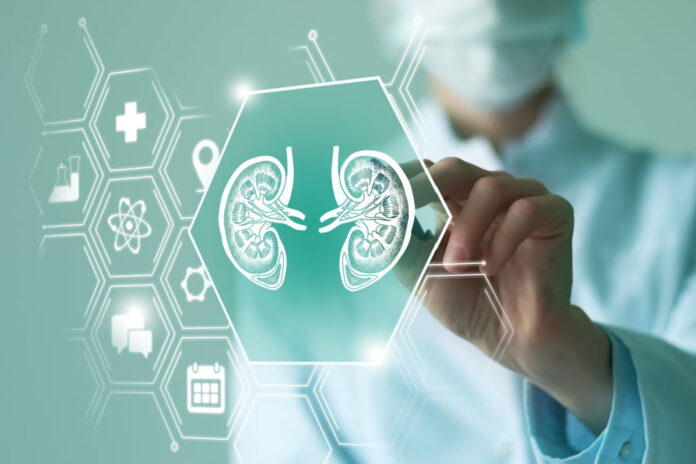Each part of the body requires specific care. For the urinary system and the male reproductive system, the health experts you should be looking for are urologists. These medical professionals study and treat conditions affecting the kidneys, bladder, urethra, and the male reproductive organs.
Think of your urologic health as the pillar that holds up various aspects of your overall well-being. If you experience urologic issues, these can have far-reaching effects—from your day-to-day comfort to your ability to start a family.
Therefore, it’s essential to grasp the importance of urology and how you can preserve or improve your urologic health. Below are some tips that may help:
Stay Hydrated
One of the best things you can do for your urologic health is to drink plenty of water daily. Water helps dilute the urine, which reduces the risk of kidney stones and urinary tract infections (UTIs). A well-hydrated urinary system is also less likely to become a breeding ground for bacteria and is better able to flush out substances that cause crystal formation.
The amount of water you need can vary based on your activity level, climate, and overall health. That said, try to aim to drink around 2 litres per day. Whenever you feel thirsty, your body is signalling that it needs more fluids, so make sure to meet these needs.
Adopt a Bladder-Friendly Diet
It’s common knowledge that a balanced diet is essential for good health. However, did you know that there are foods that are friendlier to your bladder? To protect your urologic health, it’s advisable to control your intake of foods high in calcium oxalate, such as spinach, beets, and certain nuts. This is because calcium oxalate crystals, as well as calcium phosphate and uric acid, are the primary culprits behind the formation of kidney stones. You should also reduce your consumption of processed meats and foods high in artificial sweeteners or caffeine because these can irritate the bladder. Turn your focus instead to bladder-friendly food options rich in antioxidants, like cranberries and blueberries. They prevent bacteria from adhering to the bladder walls and lower the risk of urinary tract infections.
It’s also a good idea to incorporate lean proteins like chicken, fish, and tofu, which are less taxing on the kidneys compared to red meats. Vegetables like cucumbers, lettuce, and celery are also beneficial for bladder health due to their high water content.
Incorporate Pelvic Floor Exercises to Your Workout
Regular and moderate physical activities like walking, swimming, or cycling, are essential for maintaining a healthy weight and reducing the risk of urological conditions. For better results, incorporate pelvic floor exercises like Kegels to improve your bladder health. Kegel exercises involve contracting and relaxing the pelvic floor muscles, which control urination and support the bladder. Pelvic floor exercises are particularly beneficial for women after childbirth and men recovering from prostate surgery for enhancing bladder control. For effectiveness, focus on the correct technique and optimal muscle engagement.
Limit Caffeine and Alcohol Intake
Is a morning coffee or evening glass of wine might be part of your daily routine? You might want to limit your consumption of such beverages if you’re trying to improve your urologic health. Both caffeine and alcohol can irritate the bladder and potentially exacerbate symptoms of conditions like overactive bladder or incontinence. Also, coffee and wine have diuretic effects that increase urination frequency, which can lead to dehydration.
That said, you don’t have to completely restrict yourself from enjoying these drinks. Just consume them moderately and responsibly. Gradually limit your intake or, in the case of coffee, opt for decaffeinated variants and observe how your body responds to the change. Of course, always supplement your consumption of caffeine and alcohol with plenty of water.
Quit Smoking and Other Vices
The harmful impacts of smoking to the lungs is well-known, but did you know that this bad habit also affects your urologic health?Indeed, smoking is a major risk factor for bladder cancer and can aggravate erectile dysfunction in men. This is because the chemicals in tobacco can damage the blood vessels, which then impair blood flow throughout the body, including the urinary and reproductive organs. Quitting smoking and avoiding other harmful vices is one of the best things you can do for your overall health. If you’re struggling to quit, seek support from healthcare professionals who can provide guidance and resources.
Practise Good Hygiene
Good personal hygiene is vital in preventing UTIs, particularly for women. Simple practices such as wiping from front to back after using the toilet can prevent bacteria from entering your urinary tract. You should also shower regularly and wear clean, breathable underwear to lower the chance of infections and irritation. For women, be cautious with products such as douches or scented sprays as these can disrupt the natural balance of bacteria in the genital area and increase the risk of UTIs.
Monitor Your Bathroom Habits
Observing your toilet habits can help identify urologic health problems early on. Try to note urine changes in terms of colour, smell, urgency, or frequency. When you urinate and it feels uncomfortable or painful, you should consult a doctor right away. It’s also critical to identify urinary incontinence symptoms and difficulties in urinating, as these may indicate underlying medical conditions.
Prioritising Lifelong Urologic Health
The steps to maintaining good urologic health are quite straightforward and achievable through these simple and easy practices. With healthy urinary and reproductive systems, you can engage more fully in daily activities, enjoy a healthy sexual life, and maintain bodily autonomy and comfort as you age.
Did you find this helpful? Check out our other helpful articles on our website.
Read Also
- Achieving a Defined, Balanced Facial Contour in SingaporeA well-defined jawline and a gently tapered lower face — commonly referred to as a V-shaped face — is a look many people aspire to. In Singapore’s beauty and aesthetic scene, treatments that help refine facial contours have grown in popularity as more individuals seek subtle, natural enhancements that boost confidence and balance facial features.… Read more: Achieving a Defined, Balanced Facial Contour in Singapore
- The Wellness Blueprint: How Your DNA Holds the AnswerGenetic testing is revolutionizing preventive healthcare by offering insights into individual health risks. By analyzing DNA, these tests provide a personalized health blueprint that can guide lifestyle and medical decisions. This approach, often referred to as DNA wellness testing, helps to optimize health naturally and prevent potential diseases. In recent years, genetic testing has become… Read more: The Wellness Blueprint: How Your DNA Holds the Answer
- Exploring the Benefits of Infusion Therapy in OKC: The Ultimate GuideUnderstanding Infusion Therapy: A Deep Dive into Its Purpose and Process What exactly is Infusion Therapy? Infusion therapy is an advanced medical treatment that delivers medication and nutrients directly into the bloodstream through a vein, typically via an IV (intravenous) line. This method is particularly beneficial for patients who require a concentrated dose of medication,… Read more: Exploring the Benefits of Infusion Therapy in OKC: The Ultimate Guide
- Ketamine-Assisted Therapies: Impacts on Employee WellbeingWorkplace stress is common today. Many employees feel tired, anxious, or burned out. Regular therapy can help, but some people need more support. Ketamine-assisted therapy is showing good results for mental health. A ketamine-assisted therapist guides each session safely. This therapy can improve mood, focus, and energy. Learning more about it can help teams stay… Read more: Ketamine-Assisted Therapies: Impacts on Employee Wellbeing
- The Future of Men’s Health: Why Telehealth Is Here to StayTelehealth isn’t just a pandemic trend that faded into the background. For Australian men, it has become one of the most practical, time-saving, and stress-free ways to manage everyday health — and it’s shaping the future of how we access care. Platforms like DOCTO, an Australian online doctor and specialist telehealth service, are leading the… Read more: The Future of Men’s Health: Why Telehealth Is Here to Stay
- How to Build a Simple, Clean Skincare Routine ?You don’t need a complicated skincare routine. It doesn’t have to be something that requires twenty different products and confusing steps. Your routine works well with just a few high-quality clean ingredients. The beauty industry keeps pushing more products, but your skin actually needs less. You only need a simple approach to get better results… Read more: How to Build a Simple, Clean Skincare Routine ?
- How Preventive Dental Care Supports Overall HealthHave you ever wondered how a simple dental checkup could impact your entire body? Oral health is more than just a bright smile. Studies show that poor dental habits can contribute to serious health problems. Gum disease and tooth decay are linked to heart disease, diabetes, and infections. Yet, many people overlook preventive dental care.… Read more: How Preventive Dental Care Supports Overall Health
- Seeing Clearly in a High-Tech World: A Deep Dive into Advanced Vision Care ServicesProtecting your eyesight isn’t optional—it’s essential. Modern eye care has evolved far beyond basic exams, offering advanced diagnostics, personalized treatments, and surgical innovations that keep vision sharp for life. A leading example is Intermountain Eye Center, home to specialists like Dr Fishburn Boise, where patients receive comprehensive, high-level vision care designed to preserve long-term eye… Read more: Seeing Clearly in a High-Tech World: A Deep Dive into Advanced Vision Care Services









